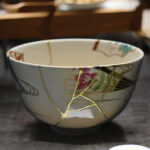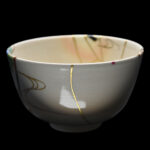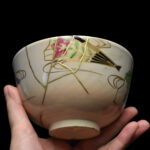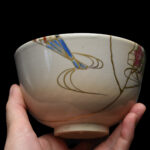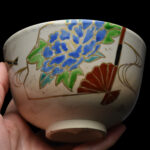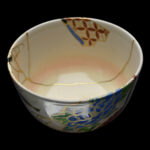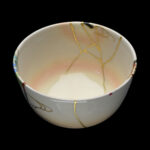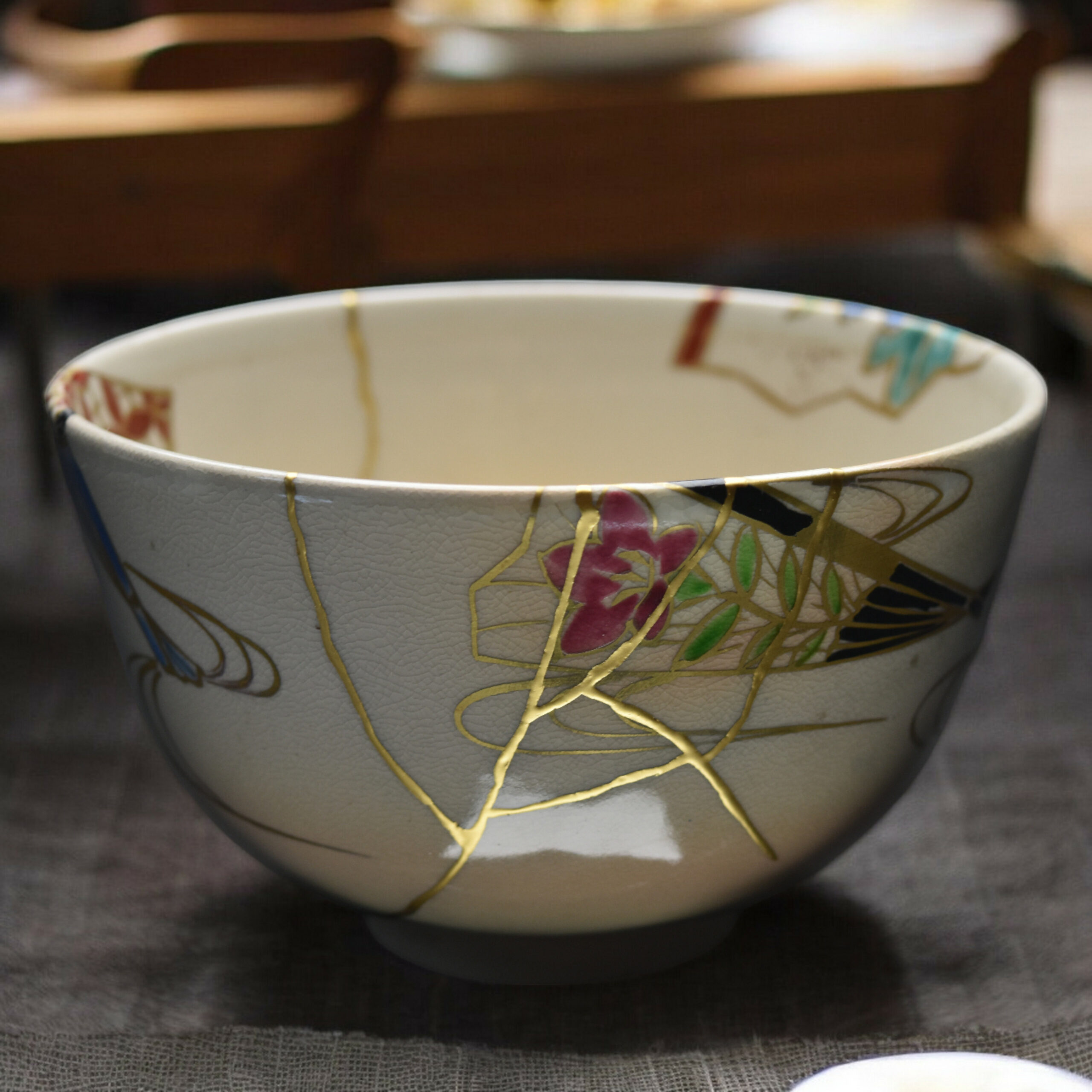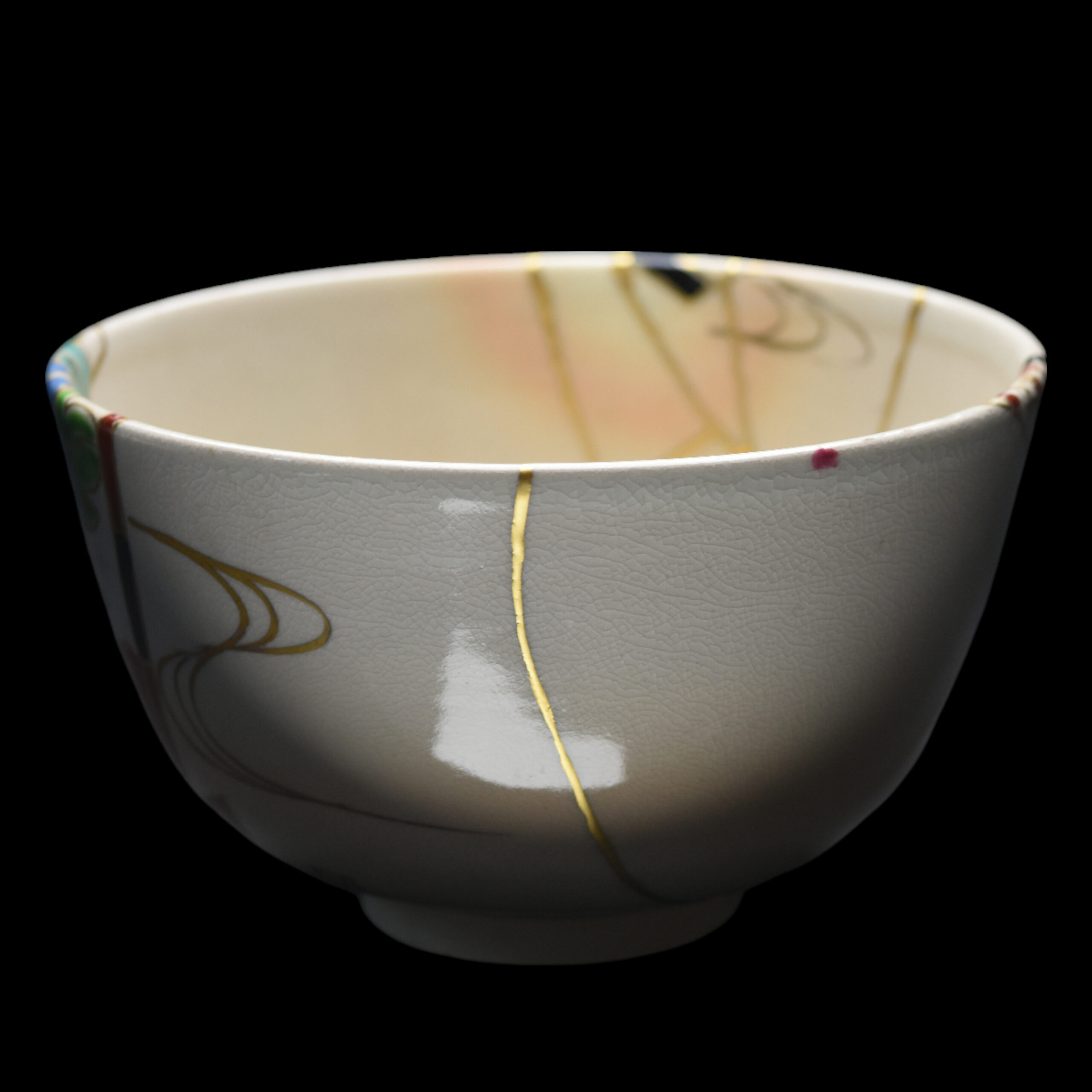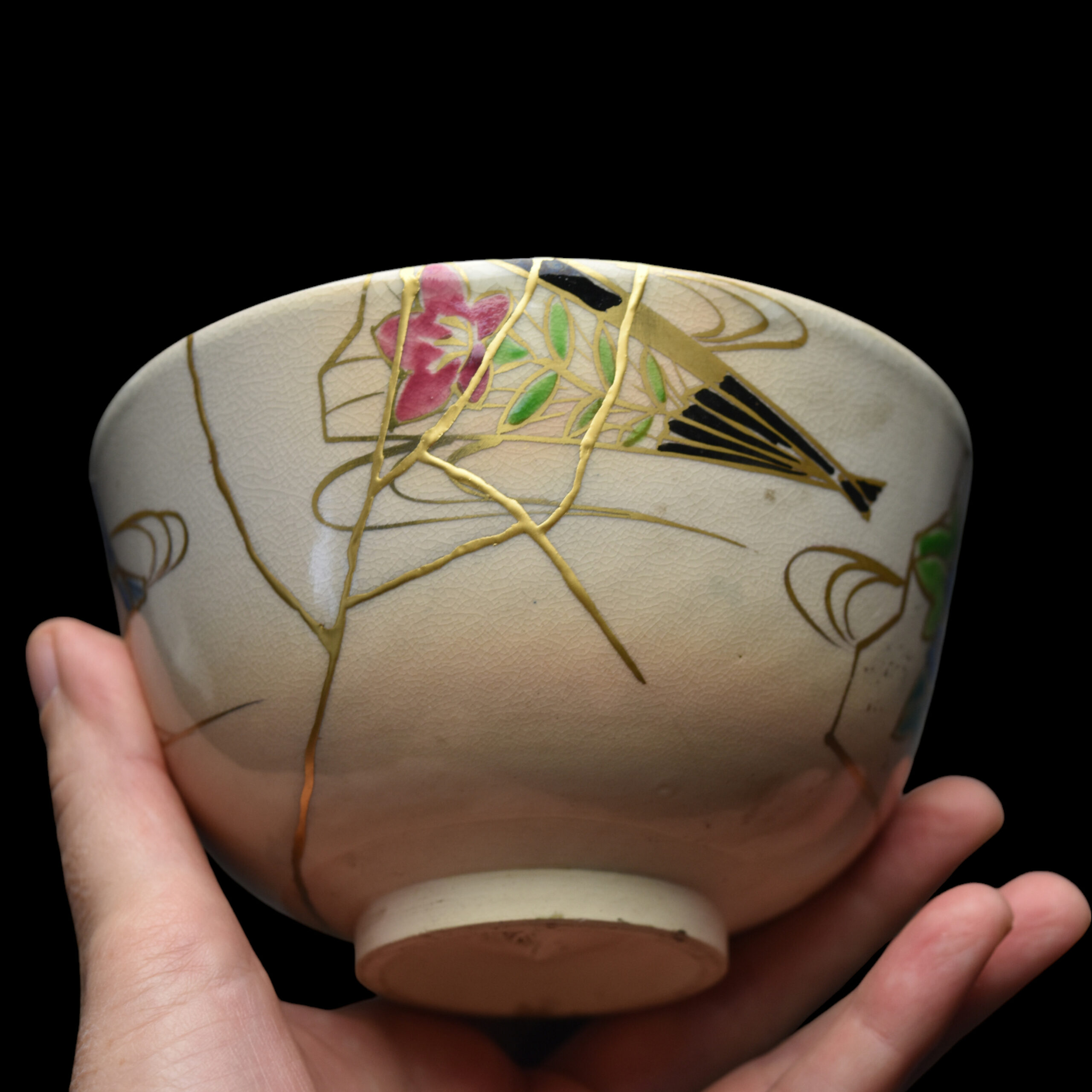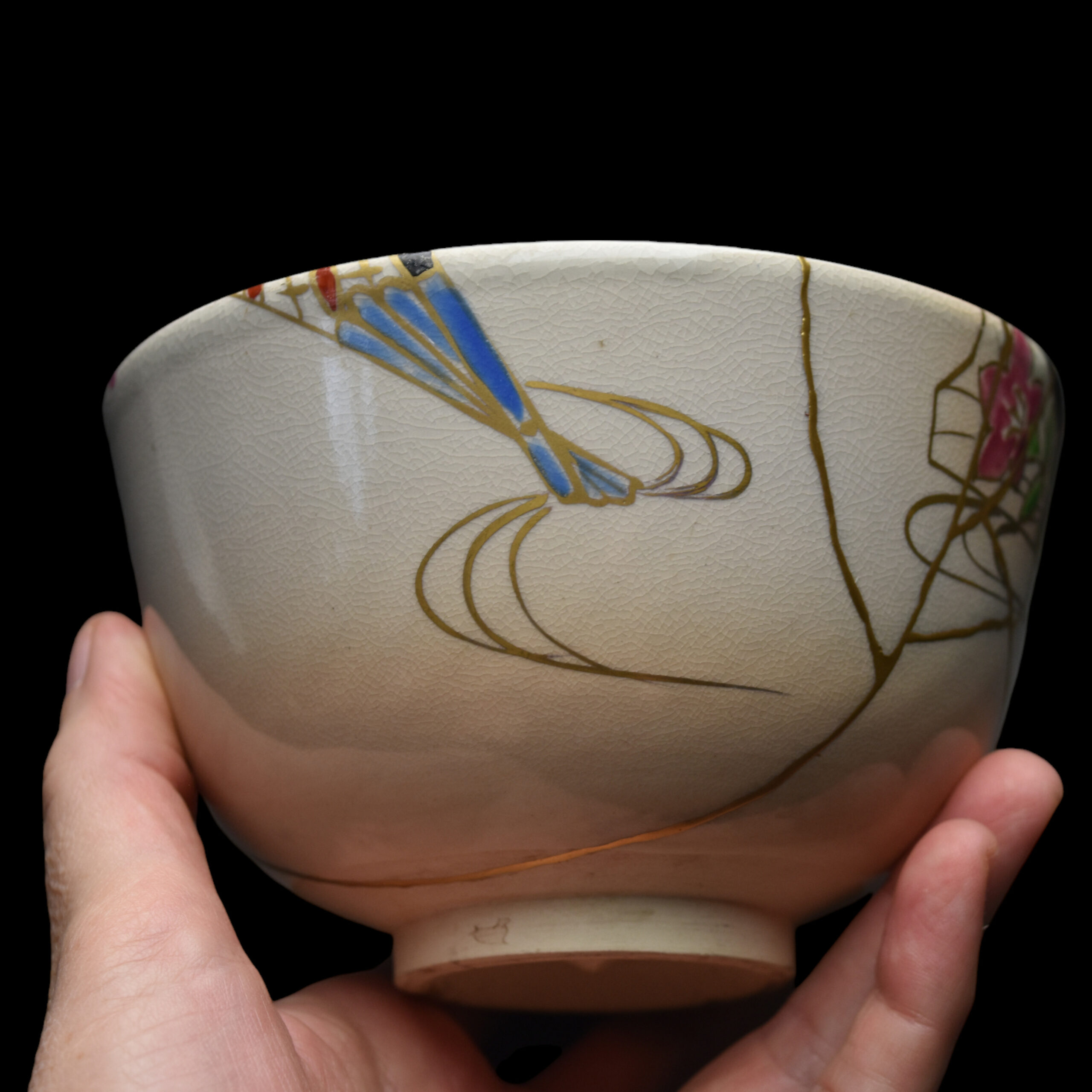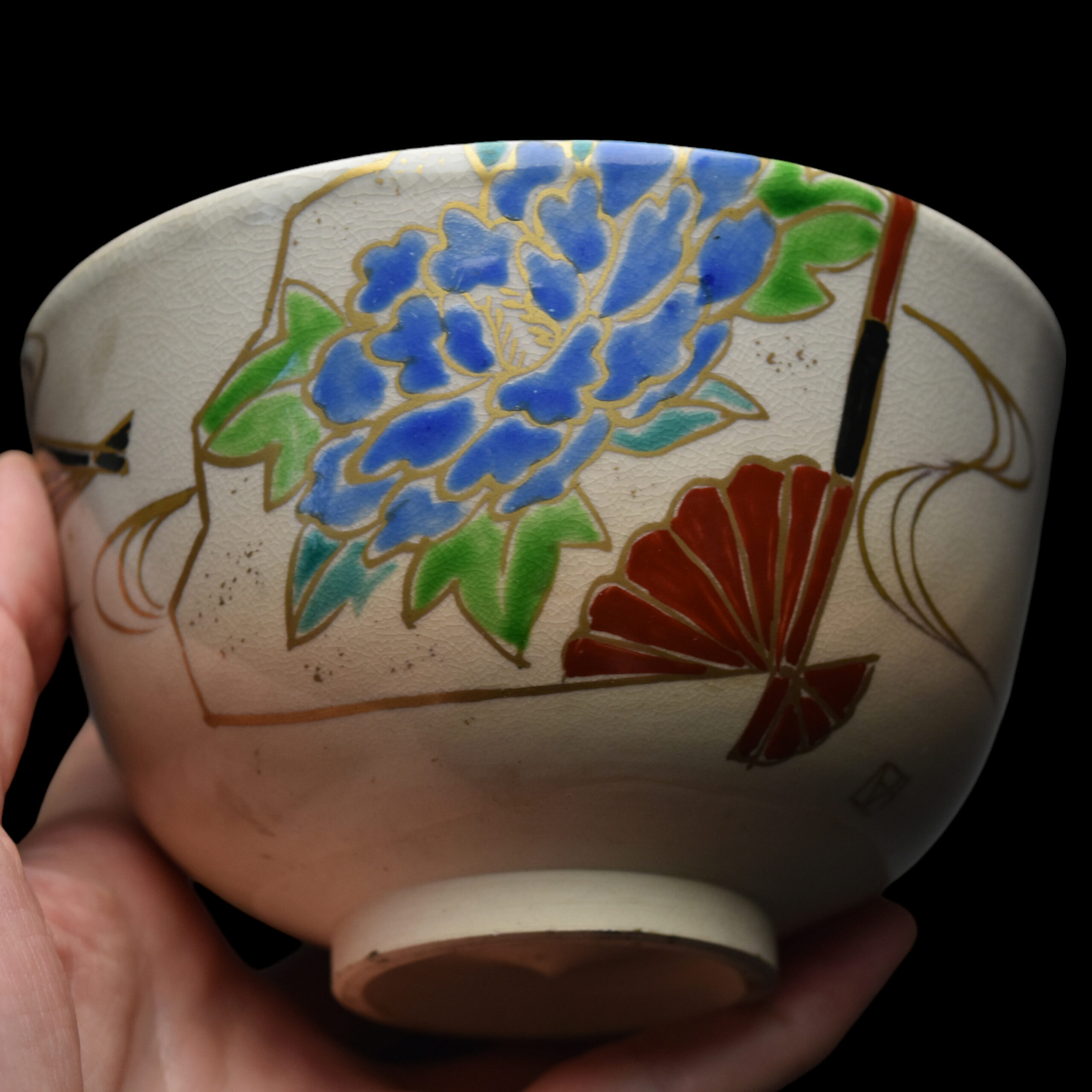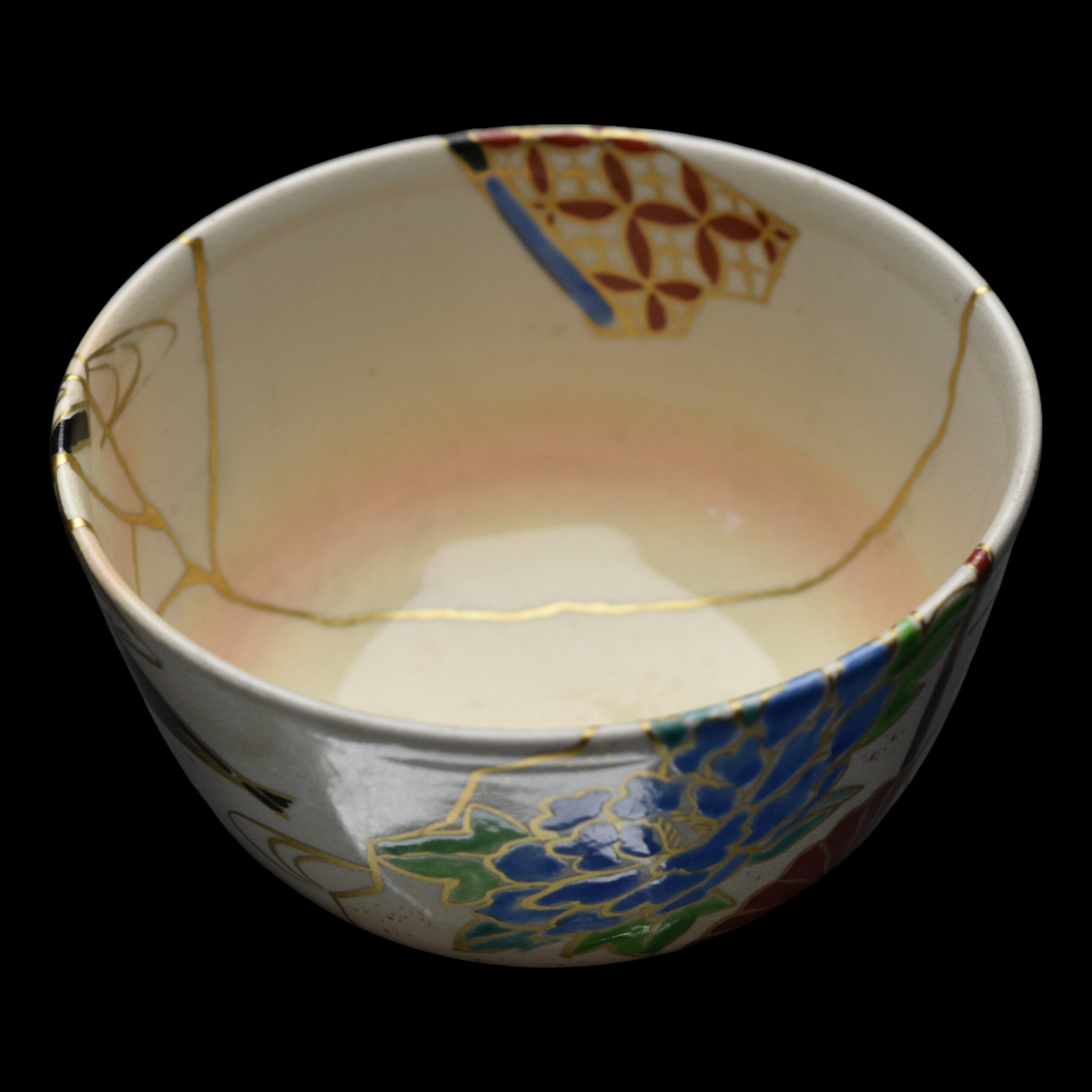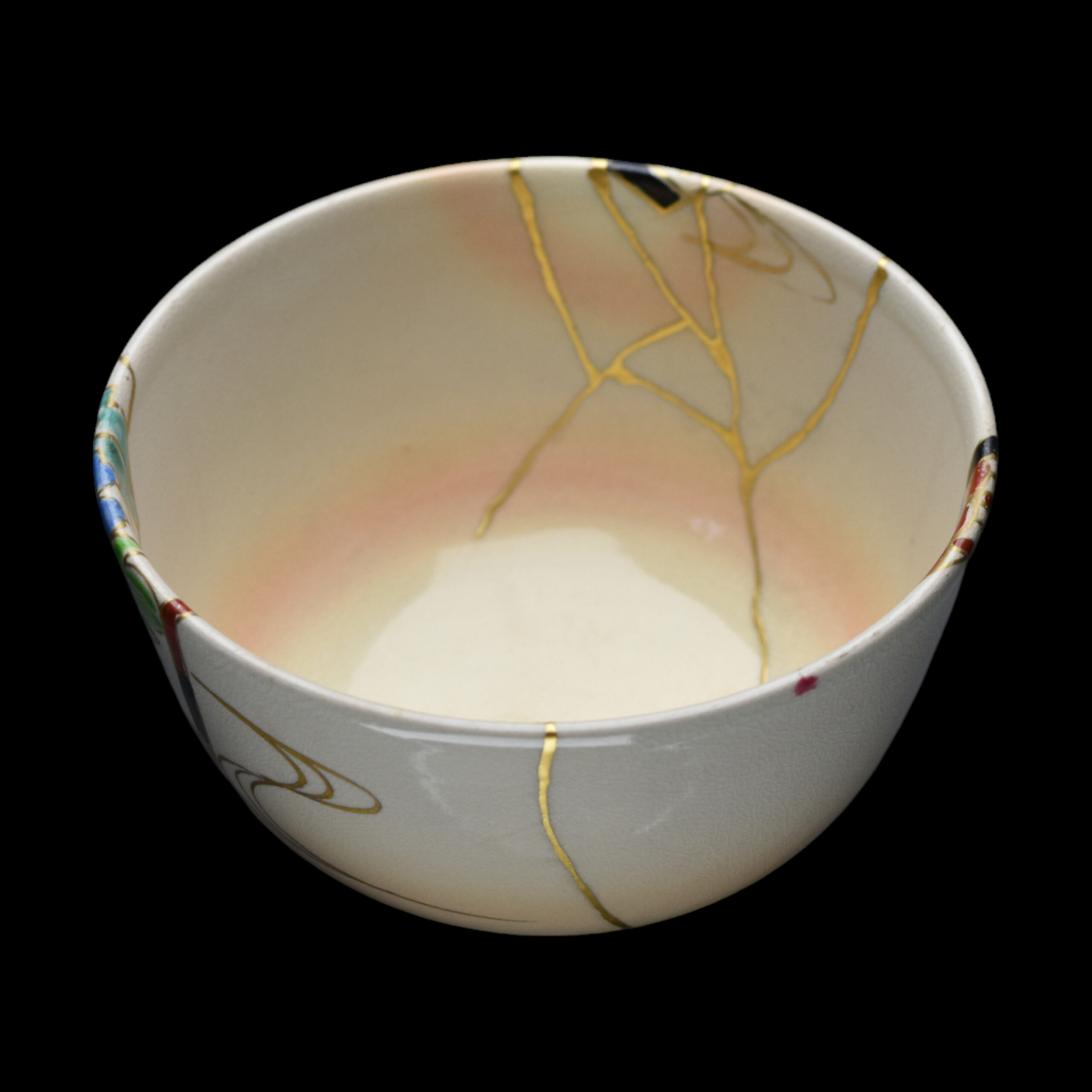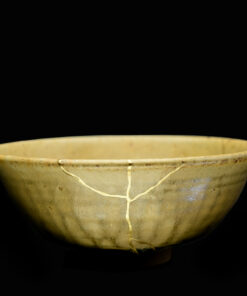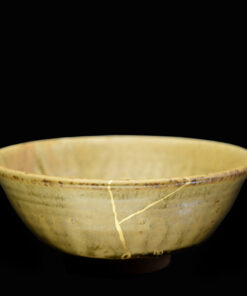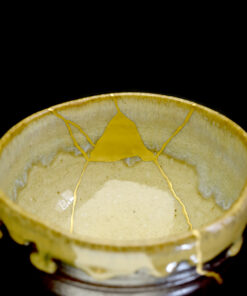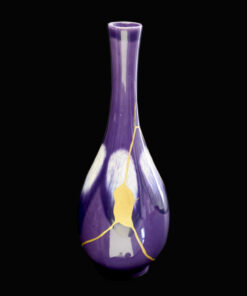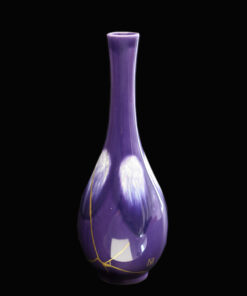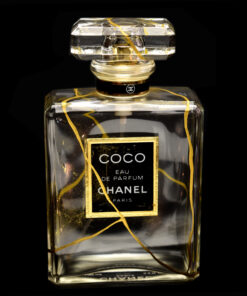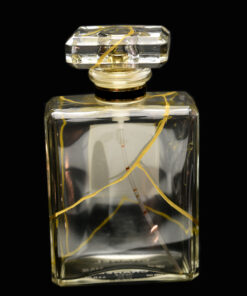Kyo chawan with peonies and fans
600 € VAT excl.
Out of stock
For express shipping please contact us before purchase as prices are difficult to calculate automatically on the website.
This exquisite piece is an iconic example of Kyoto ceramics from the Edo period (17th-19th centuries).
It is a “Kyō Yaki” bowl, a style of pottery born in the heart of Japan’s imperial capital, where the finest artisans and the most precious materials were found. This is why pieces created in this style exhibit such exquisite craftsmanship, featuring elegant hand-painted motifs often adorned with pure gold accents.
Kyō Yaki ceramics are intrinsically linked to the rise of tea culture in Japan: artists competed to create the most beautiful bowls (chawan) for the tea ceremony. This refined chawan, measuring 12 cm in diameter and 7.5 cm in height, is a prime example.
Kyō Yaki chawan, with their graceful motifs, have been highly sought after by collectors for centuries. Whether admired for their aesthetic appeal, used in traditional tea ceremonies, or simply enjoyed for daily beverages—thanks to the unique food-safe properties of kintsugi—these pieces remain highly coveted.
This one-of-a-kind, hand-painted piece is further enhanced by a 24-carat gold kintsugi restoration.
Its decoration featuring fans and peonies is rich in symbolism and reflects various aspects of Japanese culture.
Fans:
- Refreshment and Elegance: Traditionally associated with summer, fans symbolize coolness and grace. They are often used in tea ceremonies to create a gentle breeze and a serene atmosphere.
- Change and Impermanence: The folding and unfolding of fans represent the constant change and impermanent nature of life, a concept deeply rooted in Japanese culture and influenced by Buddhist philosophy.
Peonies:
- Beauty and Wealth: Revered as the “king of flowers” in Japan, peonies symbolize feminine beauty, wealth, and prosperity.
- Love and Femininity: They are also associated with love, passion, and femininity, often given as tokens of affection.
- Strength and Courage: Despite their delicate appearance, peonies also symbolize strength and courage, as they bloom even in challenging conditions.
| Origin | Kyoto, Japan |
|---|---|
| Food Safe | Yes |
| Certificate of Authenticity | Provided |
| Color | Cream |
| Materials | 24 carats Gold, Japanese sandstone, Urushi (Japanese lacquer) |
Related products
Traditional Japanese Kintsugi
Traditional Japanese Kintsugi
Traditional Japanese Kintsugi

